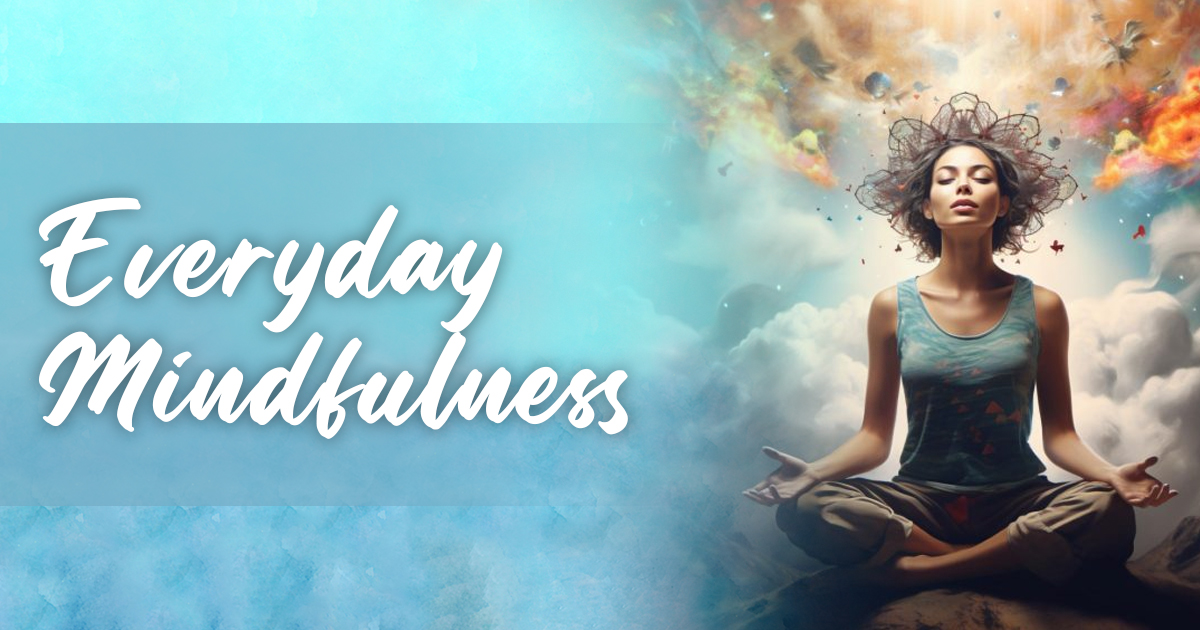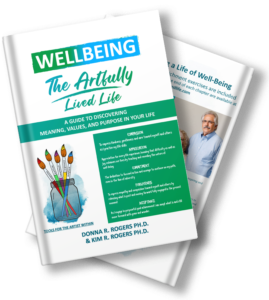How Can We incorporate Mindfulness into Our Everyday Experience?
In the past decade, mindfulness has become integrated into several mainstream psychological treatment methods including Dialectical Behavior Therapy (DBT), Acceptance Commitment Therapy (ACT), and Mindfulness-based Cognitive Behavioral Therapy (MBCT). In fact, it has been shown in clinical studies to help alleviate symptoms of distress from a number of common forms of mental illness such as depression, anxiety, ADHD and PTSD.
One might begin to wonder what it is about mindfulness meditation that makes it so effective in decreasing the symptoms of so many mental illnesses. Further, how might a mindfulness practice help us better manage our day-to-day challenges and move us in the direction of greater psychological well-being?
Two Key Principles of Mindfulness
Consider two key principles of mindfulness. The first is present moment awareness of our sensory experiences like sight, sound, taste and touch and awareness of our sometimes-automatic thinking processes.
Perhaps an example of a personal experience would be helpful. I have had a mindfulness practice for several years using basic breathing, guided meditations and mindful walking in nature. However, I wasn’t seeing a clear connection between my mindfulness meditation practice and my everyday experience. It was only when I became more aware of my “autopilot” thinking processes that this connection became more obvious.
It was on a Saturday in the fall and I was on my way to pick up a prescription that had been called in at a local pharmacy. When I arrived, I was told that they didn’t have the medication in stock, but they would transfer the prescription to another pharmacy in the chain that did have it. So off to the second stop I drove only to be told that the script had not been transferred and they didn’t know what I was talking about. After requesting that they call the first pharmacist, they understood the situation but alas they did not have it in stock either. There was, however, another pharmacy that showed that it was in stock on their trusty computer system. So, I drove off to the third place in search of my elusive prescription. They filled it and, on my way home I found myself, as is often my habit rehearsing the story that I would tell my wife of general frustration and incompetence that kept playing over and over in my mind like a recuring loop. Suddenly, I became aware of my autopilot thinking process, realized that this thinking was wasting my (always precious) time, and chose to focus on my present moment experience rather than being stuck in my recent past. As it turns out I was driving down a lovely country road among trees with beautiful fall colors reflected in the sunlight.
This was a key principle in mindfulness that I was missing. Becoming more aware of my often habitual and automatic thought processes allowed me to choose to focus on the present moment. We can always choose where to direct our attention. I also realized that becoming more aware of my thoughts and refocusing my attention was something that I was doing in my daily mindfulness meditation practice. I just wasn’t using this in my everyday life.
Another principle of mindfulness that I became aware of in my everyday experience was a nonjudgemental perspective even for things that are not particularly to my liking. This non-judgment starts with oneself and extends to others.
As related to my pharmacy example, it also occurred to me that each of these pharmacists has little control over their current medications stock or the often out of date network system they rely on. Upon reflection, I also realized that they are likely overworked, probably underpaid and are dealing with frustrated and impatient people (such as me) all day. Even though the experience did not meet my expectations, a little non-judgment on my part could have gone a long way toward my peace and equanimity and perhaps a better experience for others.
Additional Principles of Mindfulness
In addition to present moment awareness and a nonjudgmental attitude, there are several other concepts that I seek to practice in mindful meditation that can be applied in everyday life. These include:
Acceptance of the present moment, even if it’s challenging. This practice helps us move beyond judgmental expectations and reactions.
Alternative Approaches to Challenges: Often, we either avoid unpleasant experiences or obsess over them with negative thinking. Mindfulness helps us to realize these strategies are counterproductive. Instead, it promotes facing these experiences directly.
Turning Towards Discomfort: Rather than avoiding or holding onto negative aspects of challenging experiences, Mindfulness encourages us to open up to them, and then let them pass like a train crossing our path. By accepting and learning from these experiences, we increase our resilience, insight, and wisdom.
Positive Redirecting of Energy: We can focus our energy more positively by approaching our experiences with kindness and compassion and we can focus our energy more positively.
Curiosity: By viewing life experiences with the Beginners Mind, we can often be aware of our automatic reactions and choose a more effective response. In addition, approaching the world with the wonder it really deserves improves our quality of life. Afterall, we miss the beauty of a dandelion if a weed is all we see.
Gratitude for all things, including the gifts of difficulties and experiences, as we strive to learn and grow. By shifting our focus from what we lack or the hardships we face to the positive aspects of life, gratitude helps us connect with something greater than ourselves.
Equanimity, which is mental calmness, composure, and evenness of temper, especially in a difficult situation. Embracing wiser choices and behaviors leads to the development of equanimity and inner peace. Individuals who use this concept tend to transcend reactive patterns, flowing harmoniously with life’s rhythms. They tap into their intuitive understanding and grow more attuned to their surroundings. This heightened awareness allows them to foresee potential challenges and unearth solutions that might not be immediately apparent.
Where can I find more information about mindfulness meditation and well-being?
Discover the transformative power of mindfulness and unlock a life of balance, harmony, and inner peace. Start a journey to improve your well-being with “WellBeing: The Artfully Lived Life”. This essential guide offers practical steps and techniques to cultivate mindfulness in your daily life. Through over 150 Wellness Exercises and Guided Meditations, this book allows you to tap into the incredible benefits of meditation.
Start your day with a simple yet profound practice that will help you shift your focus from the chaos of the outside world to the calmness within. Don’t let stress, anxiety, or negativity hold you back any longer. Take charge of your life and embrace the power of mindfulness today!


